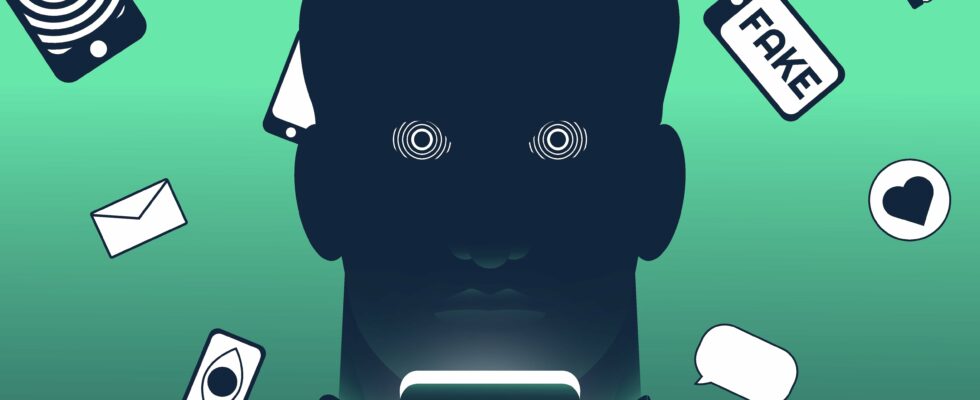This February 6 opens in Paris, and for a week, the summit for action on artificial intelligence which aims to put this technological innovation at the service of the general interest. This area is presented as the essential matrix of the present and future development of our societies. As such, it gives rise to all kinds of reveries or nightmares which are not all founded. Thus, we fear the moment of the “singularity” that the American Vernor Vinge, a computer teacher and author of science fiction, characterized by the appearance of a superior intelligence which will go beyond humanity and will escape him. Films like Matrix Or Terminator are popular expressions.
Among these anxious fantasies, one was disseminated in the form of a conspiracy theory. Kaitlyn Tiffany, a journalist from The Atlanticwas interested in it and spotted it under the pen of a user, with a fairly revealing pseudonym: Illuminatipirate. For him, and his community, passionate about magic, the Internet would have died in 2016! It would now be a sterile universe offering content produced officially by humans but in reality propagated by AI and a few influencers paid gradually to deceive citizens by malicious businesses and the government. As often, with conspiracy theories, the ultimate goal would be to make us sheep and control our thoughts.
This theory is wacky because it imagines a unified and malicious intention behind the zombification of the Internet, but it may not be so factually unfounded as you might think. It turns out that the date given, 2016, is probably no coincidence. That year, a report of the imperva safety company appeared which is interested in the activity of online robots. However, this indicated that the majority of the internet content were now created by artificial agents! On this date, robots produced 52 % of digital traffic. This study can be considered robust because it was based on 17 billion websites from 100,000 areas. Besides, at that time already, malicious robots won over assistance bots (56 % of artificial production).
When robots speak to robots
Since then, things have become even more complicated and worrying. Indeed, generative artificial intelligences-whether texts, images or videos-are increasingly trained on synthetic databases … In other words, on objects that have been generated themselves by AI. And, as the process is constantly starting again and artificial productions are gradually invading digital worlds, their “weight” in the training matrix becomes more and more important. Some researchers talk about autophagous curls, stressing that we do not yet understand their properties.
By observing these self-erased loops, they note, in all scenarios, that generative models are condemned to see their quality and diversity. The cognitive products that will emerge will be effective but impoverished and terribly monotonous. This situation, they call it a play on words whose pessimism will not escape anyone: Mad (Model Autophagy Disorder). Given the dizzying drop in their cost and the progression, no less vertiginous, of their availability, the artificial creation tools invade the cognitive market producing cemeteries of monuments that some people visit by believing that they were produced by humans and without Note that they are a little alike.
This state of affairs is no longer only leaning on boots or counterfeit photos but also to videos which are sometimes seen millions of times and are commented … by artificial intelligences! Robots speak to robots, therefore, and help produce an alternative reality which leads to an artificialization of digital land. Conspirators, as astrologers would have said Voltaire, cannot have the privilege of still being mistaken.
* Gérald Bronner is a sociologist and professor at the Sorbonne University.
.
